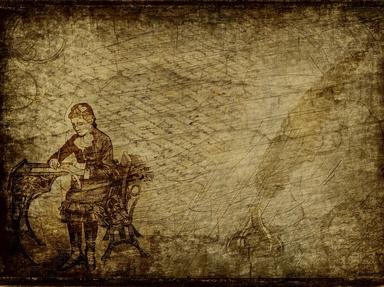Quiz Answer Key and Fun Facts
1. At the height of his popularity, Jeffers was most famous for his novel-length verse narratives. The publication of "Thurso's Landing" occasioned which major magazine to feature Jeffers on its cover?
2. Jeffers was loved for his beautiful descriptions of nature. The following lines open which famous poem?
"The ebb slips from the rock, the sunken
Tide-rocks lift streaming shoulders
Out of the slack, the slow west
Sombering its torch"
3. "The Bed by the Window" is frequently included in anthologies of American poems. What about the bed made it interesting for Jeffers to write about?
4. Jeffers wrote a play retelling a story originally made famous by an earlier playwrite. Starring Judith Anderson and John Gielgud, it was a smash hit on Broadway in 1947. What was the title of that play?
5. One of Jeffers' most popular subjects was love, and he wrote especially of the love he and his wife Una shared. From what subject(s) was he turning to her in the following lines?
"Tonight, dear / Let's forget _____________
And enisle ourselves a little beyond time
You with this Irish whiskey, I with red wine,
While the stars go over the sleepless ocean,
And sometime after midnight I'll pick you a wreath
Of chosen ones; we'll talk about love and death"
6. Jeffers hated political corruption, but he was realistic about it. Which of the following poems finds a surprising way to counsel us to just wait: political horrors won't be so bad once we're farther away from them?
7. One of the reasons Jeffers lost his high reputation was that he held highly unpopular political opinions. Which quote from "Shine, Perishing Republic" shows his opinion of America between the World Wars?
8. Jeffers' father was an important Presbyterian theologian and minister, and although Jeffers rejected his father's religion, he worked with religious ideas throughout his mature work. Which of the following poems is the only one that does NOT describe a religious position?
9. Jeffers' poems usually were written in an unusual style which gave him a strong, distinctive voice. Which of the below is so characteristic of Jeffers that he is known by this feature?
10. Jeffers' last book of poetry was published after his death. Its primary subject combined his interest in religion and his interest in science. What was its title?
Source: Author
NormanW5
This quiz was reviewed by FunTrivia editor
agony before going online.
Any errors found in FunTrivia content are routinely corrected through our feedback system.
